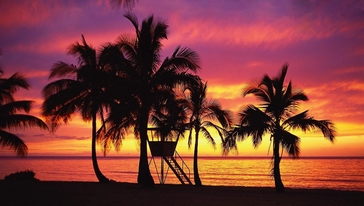The Midwest’s New Casino Capital
By most traditional measures, Las Vegas still owns the brand of American gambling. But in terms of physical scale, visitor traffic, and tribal enterprise, Oklahoma is quietly challenging that dominance. With four of the ten largest casinos in the United States, the Sooner State has transformed from a regional player into one of the country’s most significant gambling markets — and a potential future hub for online gaming as well.
| Metric | WinStar (Thackerville) | Choctaw (Durant) | RiverWind (Norman) | River Spirit (Tulsa) |
|---|---|---|---|---|
| Gaming floor (sq. ft.) | 519,000 | 219,000 | 219,000 | 212,000 |
| Slot machines | 7,500 | 7,400 | 2,800 | 3,100 |
| Table games | ~99 | 100 | 45 | 45 |
| Hotel rooms | 1,499 | 1,600 | 100 | 480 |
The Scale of Oklahoma’s Casino Industry
The flagship property, WinStar World Casino & Resort in Thackerville, is the largest casino in the United States. Its 519,000-square-foot gaming floor — filled with roughly 7,500 slot machines and nearly 100 table games — surpasses even the largest Las Vegas resorts. Owned by the Chickasaw Nation, WinStar also hosts concerts, golf courses, and luxury accommodations, functioning as both an entertainment complex and a regional economic engine.
Other major properties, including the Choctaw Casino Resort in Durant, the RiverWind Casino in Norman, and River Spirit Casino Resort in Tulsa, follow a similar model: expansive gaming floors, full-service hotels, and family-friendly amenities that attract both locals and out-of-state visitors. Texas, which bans most forms of casino gambling, is a key source of customers — particularly for properties near the state line.
The expansion of Oklahoma’s casino industry reflects more than consumer demand. It’s also a case study in how tribal nations are using gaming revenues to fund education, healthcare, and infrastructure for their communities. The Chickasaw and Choctaw Nations, in particular, have diversified their gaming income into broader economic ventures — from hospitality and real estate to technology and cultural initiatives. The casino resorts serve not only as entertainment hubs but also as symbols of tribal sovereignty and economic independence.
Statewide, the American Gaming Association estimates that tribal gaming contributes billions in annual economic impact, supporting tens of thousands of jobs and generating significant tax revenue through state-tribal compacts.
From Casino Floors to Digital Screens?
While Oklahoma dominates the physical casino map, its position in the emerging iGaming landscape — online casinos, sports betting, and social gaming — is more complicated. Oklahoma has not yet legalized real-money online casino gaming or statewide sports betting. However, several social casino platforms and sweepstakes-based apps allow players to engage in free or token-based gambling experiences that mimic real casino play. These digital platforms, coupled with Oklahoma’s strong brick-and-mortar presence, could make the state a natural bridge between traditional gaming and online gambling — if regulatory paths open in the future.
Tribal leaders have expressed cautious interest in iGaming expansion, viewing it as a potential extension of existing gaming rights. But political alignment between the state government and tribal nations remains inconsistent, and any move toward legalization would require new compacts or legislative approval.
Oklahoma’s rise also carries geographic significance. Positioned within driving distance of Missouri, Arkansas, and Kansas — all states with limited or heavily regulated gambling — the state has become a convenient destination for Midwestern gamblers. This accessibility, combined with resort-scale amenities, has turned Oklahoma into a weekend destination for gaming, concerts, and dining on a scale once limited to Las Vegas or Atlantic City. Unlike those cities, however, Oklahoma’s casino industry is decentralized. Instead of one iconic strip, the state’s gaming growth is spread across tribal lands, creating multiple regional hubs that draw different audiences.
Tribal nations have turned Oklahoma’s casino boom into one of the most successful economic engines in the Midwest.
Outlook
Oklahoma’s dominance in casino size and tribal enterprise is undeniable. It leads the nation in large-scale gaming resorts and has developed a mature, sustainable gambling economy rooted in Native American self-determination.
But when it comes to iGaming, the state’s future remains uncertain. The physical infrastructure, customer base, and brand recognition are all in place. What’s missing is a regulatory framework that connects Oklahoma’s booming casino market to the fast-growing world of digital gaming. If those legal and political barriers shift, Oklahoma could emerge not only as America’s largest physical casino hub — but as a major player in the next wave of online gambling innovation.







